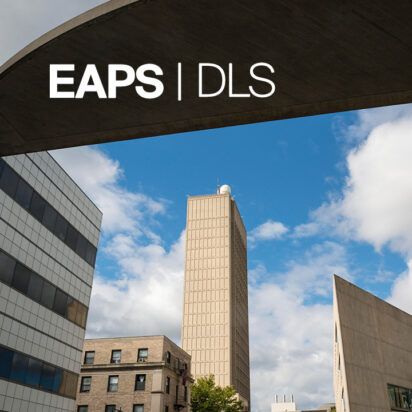
[DLS] Daniel Apai (University of Arizona)
Date: Tuesday, May 14, 2024 Time: 12:30 - 1:30pm Location: 54-100 | Dixie Lee Bryant Lecture Hall | MIT Campus, Cambridge, MA“A Thousand Earths: A Constellation of Very Large Space Telescopes for Statistical Biosignature Surveys in Extrasolar Planets”
Achieving a comprehensive understanding of habitable and inhabited planets, and correct interpretation of biosignatures, requires systematic, statistical studies of large samples of exoplanets. However, the very slow growth of the light-collecting power of space telescopes and their very high costs remain severely limiting factors in observing such samples. In fact, the high costs and limited availability of large-diameter space telescopes not only limits exoplanet and biosignature studies but space-based remote sensing across various disciplines, including astronomy, Earth and planetary sciences, as well as commercial and defense applications.
In this talk, I will introduce the Nautilus Space Observatory concept that is designed to spectroscopically characterize the atmospheres of 1,000 exo-earth candidates. Nautilus is enabled by the combination of a revolution in the space launch industry and by a novel optical technology: Multi-order diffractive engineered material (MODE) lenses. MODE lenses provide ultralight and easier-to-fabricate alternatives to primary mirrors. They enable a new paradigm in which large-diameter telescopes can be efficiently replicated at lower costs and in larger numbers. I will show our active technology development program, our latest MODE lens prototypes, and progress on design, fabrication, alignment, and testing methods. I will describe the Nautilus Space Observatory and its science scope, and discuss some of the exciting scientific opportunities such a mission will enable – in Earth and space sciences, in addition to exoplanet characterization.
[DLS] EAPS Department Lecture Series
Weekly talks aimed to bring together the entire EAPS community, given by leading thinkers in the areas of geology, geophysics, geobiology, geochemistry, atmospheric science, oceanography, climatology, and planetary science. Runs concurrently with class 12.S501.
Contact: eapsinfo@mit.edu
